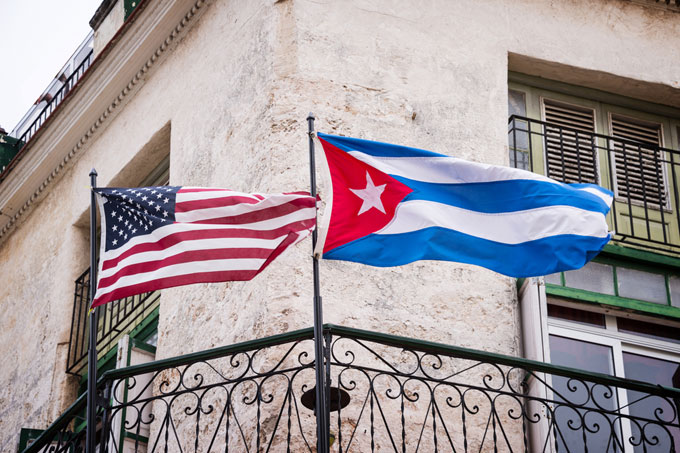Dr Steve Long, Senior Lecturer in Modern US Foreign Policy, asks ‘what next for US-Cuban relations?’
The death of Fidel Castro on 25 November 2016 brings into sharp relief an equally significant announcement made by the Cuban government three years ago, in 2013. Fidel’s younger brother Raúl, the current president of Cuba, declared that he is set to stand down in 2018, at the end of his current five year term. Although his vice president, Miguel Mario Díaz-Canel Bermúdez, is widely expected to succeed Castro, the transition to a non-Castro dominated Cuba for the first time in 59 years raises great uncertainty about how the Cuban Revolution’s legacy will be preserved and sustained in the years that follow.
These historic developments mark a pivotal crossroads in US-Cuban relations. The opportunity to accelerate the détente between Washington and Havana – a process begun by President Barack Obama and Raúl Castro in 2014 – on terms that suit US priorities is unprecedented since the triumph of the Cuban Revolution in 1959.
During the era of Eisenhower, Kennedy and Johnson, the United States pursued a hostile policy that included a near-total economic embargo, plots to assassinate the Cuban leadership, an abortive invasion planned by the CIA at the Bay of Pigs, anti-government propaganda, sabotage of Cuban infrastructure, and contingency war-planning to invade the island. More recently, Obama has introduced a softer policy line of engagement with Cuba, removing the hostile elements of US policy that fall under the control of the executive office. Lifting the embargo, re-imposed in the 1990s through legislation rather than by executive order, is quite another matter while Republicans control the US Congress.
Nonetheless, the withdrawal of the Castro brothers from Cuba’s political scene marks a potential crossroads in US-Cuban relations. As 2018 approaches, there are two fundamental questions that face US strategists, and it seems that the Obama administration was prescient in recognising this even before Fidel’s death.
First, US aims in Cuba must be clarified. Second, the effectiveness of the historic policy must be soberly evaluated. Clarity over US aims, and an honest appraisal of the limitations of US policy in fulfilling those goals since Kennedy, is vital at this pivotal moment of potential opportunity for the US.
Therefore, when Trump takes the oath of office in January 2017 his most important task when it comes to US-Cuban relations will be to soberly and realistically assess US objectives. If democracy promotion really is a genuine priority, Washington will have to accept that a democratic electoral process, by its own definition, is unlikely to be instituted immediately. Even if a democratic process is put in place when Raúl Castro steps down, the outcome of any free election might not suit US interests.
The White House has often perceived that Latin Americans have a frustrating tendency not to elect “good men”, as an exasperated Woodrow Wilson once famously uttered during the Mexican Revolution. Put another way, political leaders in the region often gain popular currency precisely because they resist US domination. This was illustrated by Hugo Chávez’s repeated success at the ballot box in Venezuela before his death in 2013, undermining George W. Bush’s stated policy of democracy promotion in that country.
What is most important as we reach an important crossroads in US-Cuban relations, is that the new US administration under President Trump should recognise that history contains an important message for it. The policy of confrontation, aggression, and the issuing of unilateral demands will continue to fail in changing Cuba’s political course, as it has done since 1959. Engagement, cultural exchange, diplomatic negotiations, economic partnership, free movement of people, these are the ways to influence Cuba’s internal affairs in a direction that the United States and Cuban Americans want. Gradualism through talking to each other, not a volte-face through shouting at each other, must be the way forward.
Find out more about American Studies at Christ Church.
 Expert comment
Expert comment Jeanette Earl
Jeanette Earl 499
499


